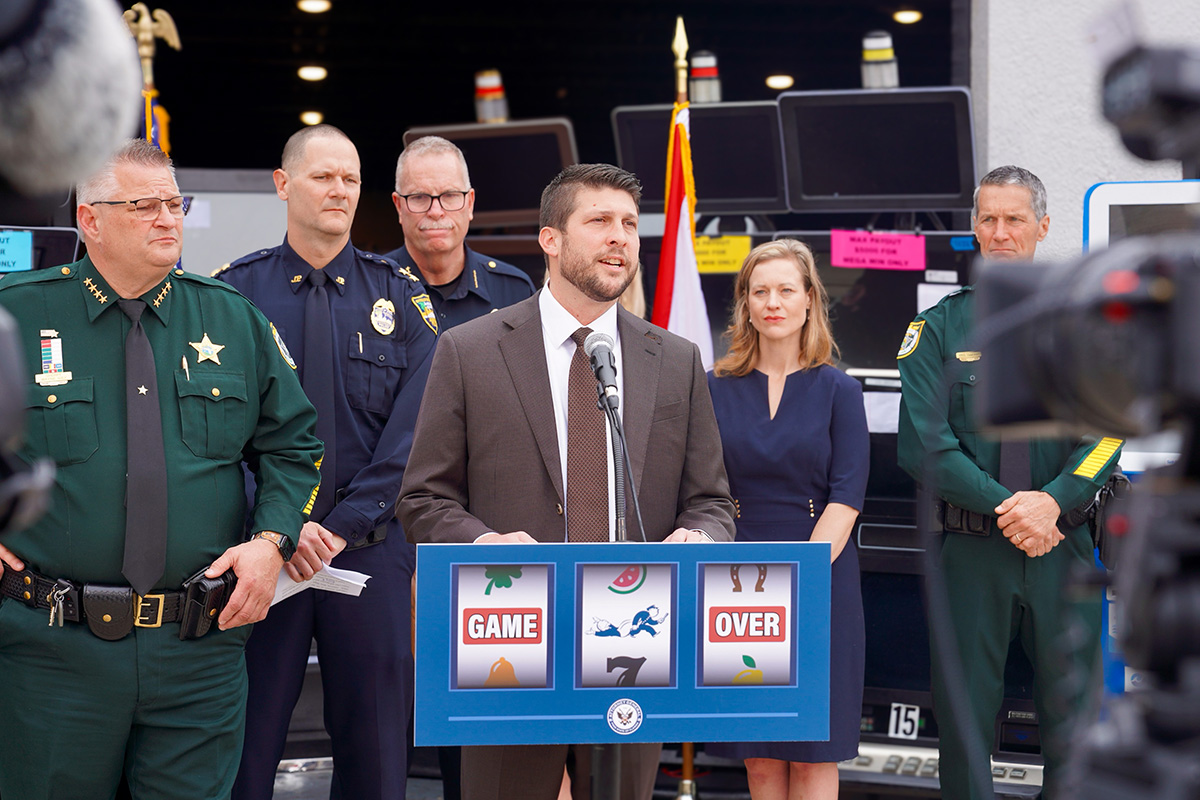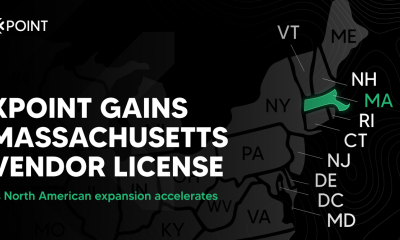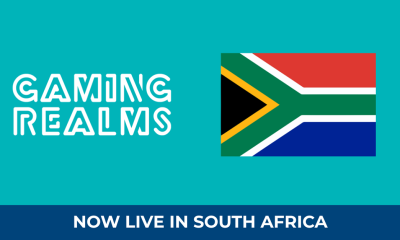Compliance Updates
Anger in the Industry After the Swedish Gambling Authority’s Acquittal of Infiniza

Last Friday, Di wrote about how the Swedish Gambling Authority closed an investigation into the Malta-based casino operator Infiniza, whose online casino, according to the authority’s assessment, is not aimed at Swedes. This is after the company changed the payment operator, i.e. who manages the transfer of gambling money from bank accounts to the casino, and the criteria that determine whether someone directs gambling at Swedes are not considered fulfilled.
Actions Did The Trick For Infiniza
“In light of the measures Infiniza Limited has taken regarding the company’s marketing as well as the payment options and/or payment service providers that were the subject of the current supervisory case, the Swedish Gambling Inspectorate assesses that the company, based on what emerged in the case, ceased to provide gambling aimed at the Swedish market without necessary license”
From the Gambling Authority’s decision that Infiniza review ceases, 21/2 2024.
Gustaf Hoffstedt, general secretary of the licensed gambling operators’ association The Swedish Trade Association for Online Gambling (Bos), is upset.
“It is offensive, and endangers the entire safety and security of the Swedish gambling license system,” he told Di about the Spelinspektionen’s decision, which he read about “with dismay” in Di.
According to Gustaf Hoffstedt, who refers to web traffic statistics that Di has taken part in, Infiniza is one of Sweden’s largest players in online casinos.
“They are estimated to have a significant operation in Sweden, in fact a large part of it is intended to receive Swedish consumers. It is of course extremely profitable, as they do not pay any Swedish gambling tax.”
The Swedish Gambling Authority’s decision has been made after Infiniza’s casinos changed their payment provider to one based in Lithuania. In the past, the Swedish-registered payment services Finshark and Zimpler reviewed by Di have been used.
“That’s exactly how it goes: if someone shines a spotlight on the fact that payment intermediaries ‘blue’ are not okay, payment intermediaries become ‘red’, then ‘green’, then ‘purple’ – and it goes on forever.”
Gustaf Hoffstedt calls for stricter legislation similar to that in the Netherlands, where it is forbidden to even accept domestic players – whereby more people play with the licensed players.
“The basic problem is the scope of the Swedish law, that is to say that unlicensed gambling companies are not explicitly prohibited from passively accepting Swedish players, provided that the company does not target them,” he says.
For several years, BOS has addressed the problem to both governments, investigators and the Gambling Authority and called for the Netherlands’ example to be followed, with the criminalization of passively accepting and enabling Swedish players.
However, the organization has cut stone in stone, and has not received a hearing for its proposal.
“The government does not want this. It claims that the channelization (the percentage of licensed gamblers, Di’s note) is good in Sweden, which unfortunately is not true, that the gambling market is stable, which is also not true, and that this is not a path that Sweden should follow.”
Marcus Aronsson, investigator at Spelinspektionen, told Di that the decision from last Friday only concerns Infiniza’s use of Zimpler, and that the just concluded case was already started in 2021.
He cannot comment on whether the payment company or companies used thereon means that Infiniza can be considered to target Swedes, nor whether a new review of the operator has been initiated after the Zimpler case.
In the decision, however, it is explicitly mentioned that the Swedish Gambling Authority can initiate a new supervisory case if Infiniza can again be considered to target the Swedish market without the necessary license.
Brevard County Sheriff Wayne Ivey
Florida: Attorney General James Uthmeier Announces Seizure of Over 500 Gambling Machines in Large-Scale, Multi-County Illegal Gaming Crackdown

Florida Attorney General James Uthmeier announced the results of a two-day sting operation targeting illegal gaming operations. The operation spanned Volusia, Brevard, Duval, and Flagler counties, resulting in the seizure of 525 illegal machines and $190,000 in illicit proceeds across 39 locations, according to preliminary operation results.
“Unlawful gambling operations often play a role as the financial backing behind criminal networks. These illegal casinos fuel organized crime, prostitution, and other illicit activities. Florida will see a major statewide crackdown on illegal gaming in 2026. If you’re running an illegal operation, don’t roll the dice; shut it down now,” said Attorney General James Uthmeier.
“The partnerships we have with the Attorney General, Florida Gaming Control Commission and surrounding law enforcement agencies are what give us great results. They help us keep our crime down in our communities and keep our citizens safe, because we don’t turn a blind eye to any crime,” said Brevard County Sheriff Wayne Ivey.
“These unregulated machines rarely pay out because they are set for the house to win. Illegal gambling is not a victimless crime. Often, it fuels other crime and preys on residents who are often elderly and on a limited income in the hopes of a big win,” said Flagler County Sheriff Rick Staly.
“This successful operation sends a clear message that organized criminal activity has no place in Florida. I’m grateful for the strong partnership between our agency, the Attorney General’s Office, and our regional law enforcement partners because by working together, we’ve made Duval County and the State of Florida a safer place,” said Jacksonville Sheriff T.K. Waters.
“The operators and slumlord property owners who prop up these unregulated, illegal casinos are ripping off our residents and costing them their savings. These casinos are connected to money laundering, drug smuggling and human trafficking. We will keep taking them down with our partners like the Attorney General and the Gaming Control Commission, but we really need further action from the Legislature to address this problem statewide,” said Volusia County Sheriff Michael Chitwood.
“The Florida Gaming Control Commission (FGCC) is thankful to Governor Ron DeSantis, Attorney General James Uthmeier, the Florida Legislature, and our law enforcement partners for these outstanding results. Thank you for this wonderful teamwork. These actions are protecting Floridians from predators who mislead unsuspecting citizens. True collaboration is key to a significant outcome such as today,” said Florida Gaming Control Commission Chair Julie Brown.
This was a joint operation by the Gaming Control Commission, the Office of Statewide Prosecution, Volusia County Sheriff’s Office, Flagler County Sheriff’s Office, Brevard County Sheriff’s Office, and Jacksonville Sheriff’s Office.
Machines were seized from restaurants, bars, gas stations, sham arcades, and standalone illegal casinos—some unmarked and some masquerading as other businesses such as nail salons and beauty supply stores. Law enforcement seizures included stand-up slot machines, PC slot machines, tabletop machines, coin-push machines, and fish table machines.
This operation advances Attorney General Uthmeier’s 2026 priority of executing a statewide crackdown on illegal gaming operations. The Attorney General has urged the Florida Legislature to enact reforms to increase the penalty for keeping a gambling house to a felony.
The post Florida: Attorney General James Uthmeier Announces Seizure of Over 500 Gambling Machines in Large-Scale, Multi-County Illegal Gaming Crackdown appeared first on Americas iGaming & Sports Betting News.
Compliance Updates
Romanian Mayors Push to Ban Gambling Halls

A wave of Romanian mayors has followed the example set by Slatina’s mayor, who recently announced plans to eliminate gambling halls from his city under newly amended legislation. While the political signal is growing louder, the decisive vote belongs to local councils – and gambling operators are unlikely to retreat without resistance.
On February 26, the mayor of Vaslui, Lucian Braniște (PSD), said he would submit a draft decision to the Local Council seeking a ban on gambling halls within the city. He argued that gambling has become a serious social issue across many Romanian communities.
“In recent years, gambling has become a real problem in many communities in Romania. Beyond advertisements and colorful lights, behind these halls, there are too often stories of affected families, debts, addiction, and suffering,” the mayor said.
In Ploiești, mayor Mihai Polițeanu also voiced support for eliminating gambling venues and announced that he would table a similar proposal before the City Council, Economedia.ro reported. He described parts of the city centre as having turned into a “strange, underworld-like” area, suggesting that the proliferation of betting shops has contributed to urban degradation.
The mayors of Brăila and Rădăuți have likewise declared their intention to pursue restrictions on gambling activities.
The initiatives follow a recent amendment to gambling legislation adopted by the government, which now requires operators to obtain not only a national licence but also a local authorisation from the mayor’s office in the municipality, town, or commune where they operate. The new provision also empowers local councils to decide whether such activities may take place within their administrative boundaries.
While the political momentum appears to be building, the outcome will ultimately depend on council votes in each locality. Given the economic stakes and the industry’s established presence, legal and political battles are expected before any city can formally declare itself gambling-free.
The post Romanian Mayors Push to Ban Gambling Halls appeared first on Eastern European Gaming | Global iGaming & Tech Intelligence Hub.
Compliance Updates
Crypto.com Receives Limited Financial Institutions Licence in Europe

Crypto.com has announced another regulatory milestone: its EU MiCA regulated entity has received a Limited Financial Institutions licence from the Malta Financial Services Authority (MFSA). The approval allows the company to continue delivering its full suite of stablecoin services – qualifying as payment services – across the European Union, without disruption.
This additional licence is for the provision of services exclusively in relation to electronic money tokens (EMTs). The licence was acquired to navigate a complex regulatory landscape resulting in overlapping crypto asset services (MiCA) and payment services (PSD2). By securing the Limited Financial Institution Licence, Crypto.com has addressed both regulatory regimes ensuring full compliance across every aspect of its stablecoin operations.
Crypto.com’s Malta entity received MiCA approval in January 2025, allowing the company to passport services across the European Economic Area (EEA). Notably, Crypto.com already holds a full Electronic Money Institution (EMI) licence in Europe, making it one of the most comprehensively authorised platforms operating in the region.
“We are one of the most regulated crypto platforms in the world and receiving this licence proves, yet again, that we are committed to working with authorities to ensure the strongest compliance standards. Our stablecoin business and services remain a pivotal part of our European product offering so it was vital we secured this limited licence to continue providing seamless access to our institutional and retail customers,” said Eric Anziani, President and Chief Operating Officer at Crypto.com.
The limited Financial Institutions licence adds to Crypto.com’s expanding list of licences and registrations globally including, but not limited to, a UK Electronic Money Institution licence (FCA), a Major Payment Institution licence in Singapore (MAS), a Virtual Assets Service Provider licence in Dubai (VARA), U.S. Money Transmitter Licences, U.S. Designated Contracts Market (DCM) & Derivatives Clearing Organization (DCO) licences and recently conditional approval from the U.S. OCC for a National Trust Bank Charter.
The post Crypto.com Receives Limited Financial Institutions Licence in Europe appeared first on Eastern European Gaming | Global iGaming & Tech Intelligence Hub.
-

 iGaming6 days ago
iGaming6 days agoPRAGMATIC PLAY UNEARTHS PROGRESSIVE MULTIPLIERS IN ROLLING IN TREASURES
-

 Comatel5 days ago
Comatel5 days agoCOMATEL CELEBRARÁ UNA FIESTA PARA CIENTOS DE OPERADORES TRAS FINALIZAR EL PRIMER DÍA DE LA FERIA ESPAÑOLA, INTERAZAR
-

 Booming Games6 days ago
Booming Games6 days agoBooming Games Introduces Instastrike, the Latest Diamond Hits Trio
-

 ELA Games6 days ago
ELA Games6 days agoELA Games Powers the Reels with Retro-Electric Slot “Rapid Wild”
-

 Africa7 days ago
Africa7 days agoGaming Realms Makes South African Debut in Partnership with Hollywoodbets
-

 Alex Green Vice President Games at ZEAL6 days ago
Alex Green Vice President Games at ZEAL6 days agoWunderino Adds ZEAL’s Premium Slots as Partnership Kicks Off
-

 Blueprint Gaming6 days ago
Blueprint Gaming6 days agoNew collect modifiers and dual bonus offering star in Blueprint Gaming’s King Kong™ Splash
-

 Brasil6 days ago
Brasil6 days agoBrasil evita choque fiscal y apuestas entran en fase reputacional en LATAM































